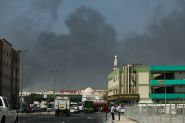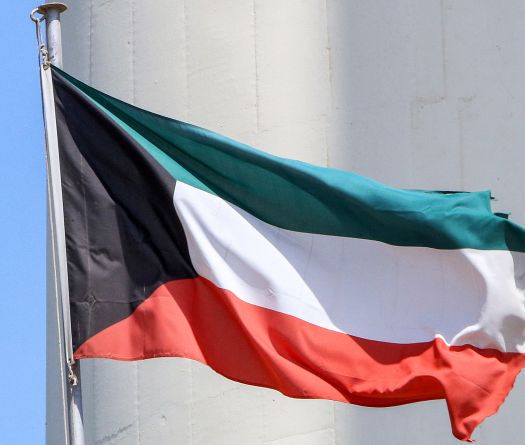
- 21:16 Blasts heard over Jerusalem after incoming Iran missiles detected: AFP journalists
- 21:12 Police station near Tehran hit by strikes, people trapped under rubble: local media
- 20:55 Strikes kill two Iran-backed fighters near Iraq-Syria border: security, pro-Iran group sources
- 20:54 Israel army says 'severe blow' dealt to Iran's commmand and control centres
- 20:35 UAE withdraws ambassador from Iran, closes embassy over attacks: statement
- 20:30 Iran media outlets report strikes hit hospital in Tehran
- 20:08 Dozens of civilians killed in north of South Sudan: UN
- 20:03 Turkey's Erdogan says 'saddened' by Khamenei's death
- 20:00 Conflict closes Dubai, Abu Dhabi stock markets to Tuesday: regulator
- 19:52 Protesters, police clash near US embassy in Baghdad: AFP


Israel Warns Hezbollah of “Severe Blow” as Group Condemns U.S.-Israeli Strikes on Iran
This is Beirut 28/02 17:50

Lebanese Authorities Warn Hezbollah Over Escalation Risks as Regional War Rages
This is Beirut 28/02 14:10

Israeli Airstrikes Target Southern Lebanon Amid Escalation with Iran
This is Beirut 28/02 11:10

Israel Deploys 91st Division to Lebanon Border as Lebanese Leadership Warns Against “Adventures”
This is Beirut 28/02 10:15
See all


Iranian Missile Strike Hits Israel, Killing at Least Nine
This is Beirut 16:30

Gulf Countries to Hold Video Meeting on Iran Attacks Sunday: Two Diplomats
This is Beirut 15:05

Iran State TV Says Oil Tanker Struck in Strait of Hormuz
This is Beirut 14:10



































